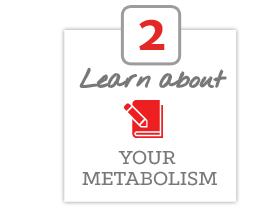It is so easy fall in to the trap of prescriptions, especially with thyroid hormones.
Thyroid hormone regulates your cellular resting metabolism. T3 is the active thyroid hormone. Therefore More T3 promotes “more metabolism”. Sounds alluring right? My prescription pad is ready, but wait.
For every action, you body responds with a greater and compensatory reaction. If there is an exogenous T3 (Introduced from outside the body) taken, you body will store more and trigger the ever-important insulin resistance so you do not burn out. Your body will also de-activate the very hormone that you just took – you can’t fool mother nature that easily. Let me explain.
As a metabolic specialist, I am tempted to offer a T3 prescription to more people when headlines like this appear,
“Low T3 with higher T4 is associated with those with Inulin resistance and T2DM”. Add T3 and I’ll presumably improve this ratio, furthermore the active T3 will go up.
[Farasat T, et al. Hyperinsulinemia and insulin resistance is associated with low T(3)/T(4) ratio in pre diabetic euthyroid pakistani subjects. J Diabetes Complications. 2012 JUL;26(6) 522-525.]
But a high T3/rT3 ratio directly correlates with greater insulin resistance measured by the HOMA-IR.
[Ruhla S, et al. T3/rT3-ratio is associated with insulin resistance independent of TSH. Horm Metab Res. 2011 Feb;43(2):130-4.]
The addition of T3 prescription (Cytomel is the brand name for liothyronine, or T3) has a dose dependent trigger toward insulin resistance. The more you take, the worse your insulin resistance becomes. This is no small finding that only affects a few people, significance was found throughout several small T3 dosages in the studies.
[Lambadiari V, et al. Thyroid hormones are positively associated with insulin resistance early in the development of type 2 diabetes. Endocrine. 2011 Feb;39(1):28-32.]
Why does this all happen? – When we prescribers add T3 prescriptions, T3 numbers and ratios actually get worse, and we are likely contributing to a worsening of damaging insulin resistance. The truth is, the DIO enzymes regulate glucose homeostasis and insulin sensitivity and they are locally controlled throughout your body.
[Chidakel A, et al. Peripheral metabolism of thyroid hormone and glucose homeostasis. Thyroid 2005 Aug;15(8):899-903.]
I have a take home message, and part of it is in response to the humble pie I had to take when I realized that my prescriptions made some people worse. – If you are told by a doctor that you should take a T3 prescription, assure that you have properly evaluated for insulin resistance first. You can do this by checking a fasting glucose and insulin. Use the calculator to run the number. If you have a high glucose or high HgbA1c, you already know that insulin resistance is a showing. The T3 prescription will likely make you worse.
You can take the step toward reading the owners manual for your body’s metabolism, it is called The Blood Code.




OK I am confused. Do naturopaths have prescription rights in Maine?
Yes Sasha, in Maine, Naturopathic Doctors have prescriptive authority for several classes of medications, including Antibiotics, hormones and immunizations. In my non-insurance based practice, I find myself working with different thyroid medications to find the right metabolic support for each individual.
-RM